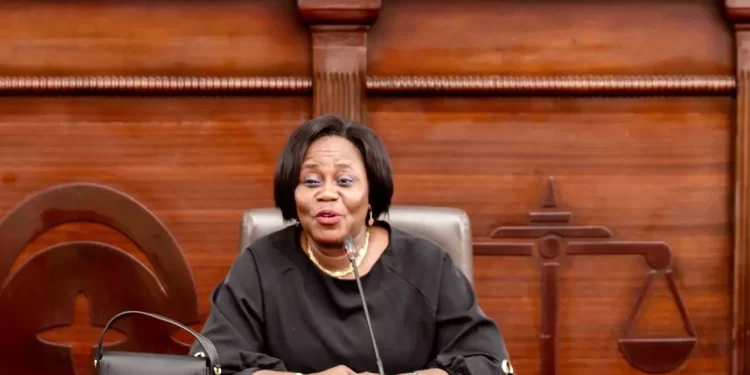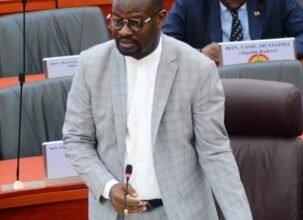‘I couldn’t Let Falsehoods Stand – Thaddeus Sory Explains His Response to Torkornoo’s Public Claims
Credit: Abubakar Ibrahim

Renowned lawyer and law lecturer, Thaddeus Sory, has defended his decision to publicly respond to what he described as false claims made by the then-suspended Chief Justice during her press conference on a case he was handling.
Speaking on JoyNews’ PM Express with Evans Mensah on October 20, he said he was compelled to act swiftly because the Gertrude Araba Sackey Torkornoo’s remarks contained deliberate inaccuracies that could not be allowed to stand unchallenged.
“I reacted almost 30 minutes right after she did it,” he said.
“If a serving Chief Justice should descend that low—she’s not just a Chief Justice, she’s a lawyer of so many years’ experience—she should not be the one setting that bad example. I had to do that to correct that point.”
Mr Sory explained that his reaction was not driven by emotion but by duty.
“She put out there deliberate falsehoods that the public needed to know about. As a professional, I owe a duty to the public. If a lawyer of that standing goes out to mislead the public, I owe it as a duty to the public to let them know exactly what the truth is,” he said.
He revealed that he weighed the ethical restrictions of his profession against his responsibility to protect the truth.
“On that occasion, I violated the rule, but in another context, I didn’t,” he explained. “Because I also owe the public the responsibility to ensure that they knew exactly what was going on.”
The prominent lawyer, who has represented clients in some of the most consequential legal cases in Ghana’s Fourth Republic, said his actions were rooted in principle, not personal interest.
“It’s based on my upbringing,” he noted. “I also relate with people who believe in standards. So if you find that I’m committed to a particular principle that I say I won’t violate, it’s because I believe in standards.”
He emphasized that his guiding principle as a lawyer is to conduct his cases in the courtroom, not in the court of public opinion.
“The ethics in my profession say do not speak about a matter when it is pending in court, especially when you are conducting it,” Sory said.
“Your duty is to conduct your case in the courtroom, not outside. There’s no reason to depart from that only because people want to upset you or provoke you.”
Sory has been at the center of some of Ghana’s most significant judicial events, including the case that led to the removal of a sitting Chief Justice—the first in the Fourth Republic.
His decision to respond publicly to her comments, he said, was an exception guided by conscience and his duty to protect the integrity of the legal process.
“I couldn’t let falsehoods stand,” he said firmly. “That was my responsibility as a lawyer and as a citizen.”



